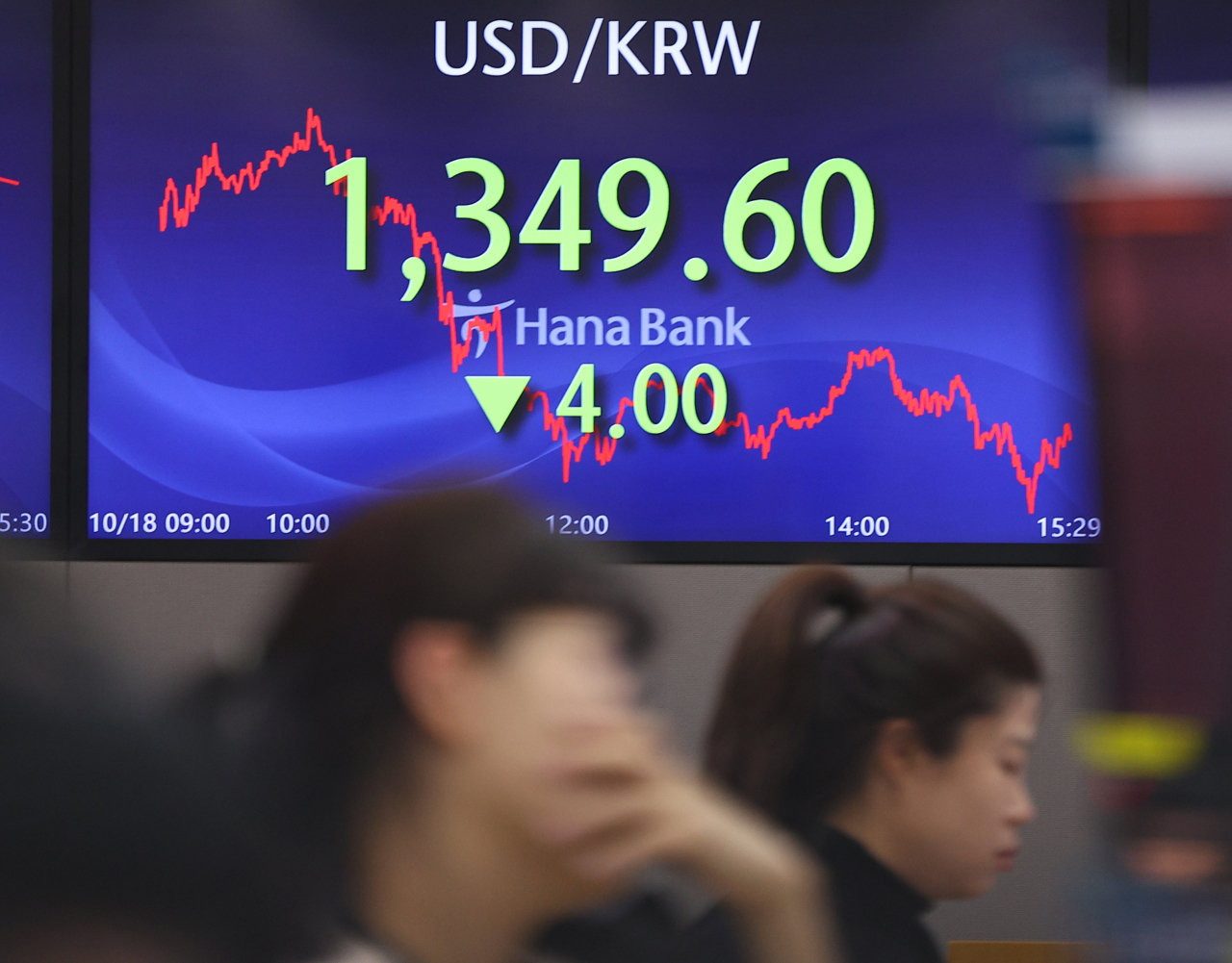
South Korea has begun the registration process for offshore financial firms to participate in interbank trades of the Korean won as part of its ongoing efforts to open up the domestic financial market to more foreign investors.
Registered foreign institutions, or RFIs, will be able to participate in dollar-won spot exchanges, forex swap exchanges and forward exchanges from January next year, according to the revised Enforcement Decree of the Foreign Exchange Transaction Act that took effect on Oct. 4.
Offshore firms, including global banks and brokerage houses, are allowed to register once they open a Korean won account at a local bank and secure a credit of line agreement with a financial firm here.
According to a recent government-led survey, some 30 firms have already expressed willingness to participate in the nation’s forex market.
The influx of RFIs could help increase the overall trade volume of the domestic forex market, stabilizing the currency exchange rates for the Korean won, Seoul’s financial authorities deemed.
Currently, only 54 certified local financial firms and overseas firms with a branch here are allowed to trade in the interbank forex market.
The RFIs will participate in domestic forex trading through a trial run in the first half of next year, before it kicks off in full swing in July 2024. The operating hours of the domestic forex market will also be extended then, from the current 9 a.m. to 3:30 p.m. to 9 a.m. to 2 a.m.
Before the change in the operating hours, forex authorities are to run trial tests, designating specific days for longer trading hours, for instance, operating the market from 9 a.m. to 9 p.m. or 9 a.m. to 2 a.m. to test the proposed changes.
Authorities are looking into opening the market for 24 hours in the future, so the trading hours can overlap with the London finance market, initiating more participation from foreign firms.
The changes come as part of a move to improve the accessibility of the domestic forex market, one of the major reasons Korea missed out on the upgrade for the Morgan Stanley Capital International index in June. The MSCI global stock index provider pointed out that Korea's forex market lacks accessibility.
Along with the policy changes, the Finance Ministry is to make further improvements on the infrastructure of the forex market and related regulations as well. The government will look through amendment proposals and confirm the agenda items for improvement through a November meeting.
"We will work to have the reforms successfully settle down, making the local forex market meet global standards and form a competitive market structure, which will lead to improvements for foreign exchange services and more," the Finance Ministry said.







![[Graphic News] Number of coffee franchises in S. Korea rises 13%](http://res.heraldm.com/phpwas/restmb_idxmake.php?idx=644&simg=/content/image/2024/05/02/20240502050817_0.gif&u=)

![[Robert J. Fouser] AI changes rationale for learning languages](http://res.heraldm.com/phpwas/restmb_idxmake.php?idx=644&simg=/content/image/2024/05/02/20240502050811_0.jpg&u=)








![[Eye Interview] 'If you live to 100, you might as well be happy,' says 88-year-old bestselling essayist](http://res.heraldm.com/phpwas/restmb_idxmake.php?idx=652&simg=/content/image/2024/05/03/20240503050674_0.jpg&u=)
